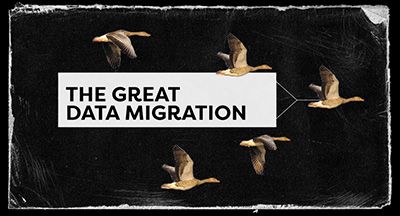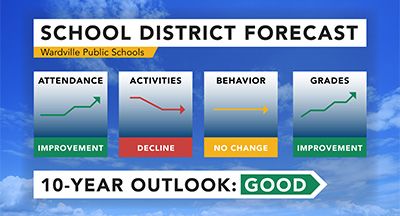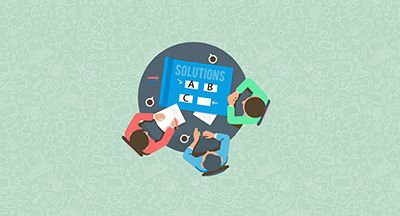How to Win a Millennial’s Loyalty
#Culture
Lindsey Canny
by
Lindsey Canny

|
Lindsey Canny Edtech Thought Leader |

|

|

|
 |
“How do you win a millennial’s loyalty?” It sounds like the setup to a punchline, doesn’t it? It’s no joke, though, that the millennials—adults ranging from their late 20s to early 40s—make up the largest section of the US labor force at more than 35%. That’s a lot of loyalty, if you can get it. The most egregious mistake, however, is in thinking that Millennials don’t have loyalty in the first place.
Your millennials want to be your biggest cheerleaders. They are ravenous to have a workplace that can inspire them to wear the t-shirts, puff out their chests, and tell the whole world, “Yeah, I work there. You should totally apply.” As boomers and Xers continue to reach retirement and leave the workforce for good, districts are going to rely on the advocacy of this next cohort more than ever, and they’ll have to know what motivates millennials to seek them out and–later on–what will play into the decision to stay.
Agility
The millennial’s take on culture is simple:1) They want to feel like they matter (because who doesn’t?)
2) They want to be set up to succeed
3) They don’t want to fall into “the machine.”
Flexibility is like oxygen to this generation. If you try to stuff a millennial in a box with rigid processes and mind-numbing bureaucracy, you’re going to suffocate them. Show the end goal, clear it of unnecessary red tape, and let them find our own way there.
How many “that’s how we’ve always done it” procedures does your district have in place right now? If your employees think of a better way to do it tomorrow, how hard is it for you to implement change of even the smallest magnitude?
Millennials can’t be expected to wait on snail’s-pace approval processes without getting frustrated – the world they grew up in one of agility and adaptability, and they work hard to stay ahead of change. They expect the same of their employers.
Don’t worry—This isn’t a case of entry-level anarchists trying to bring down the system. It’s simply a pushing-back at the inflexibility and impersonality of the status quo. But some of that comes down to miscommunication, and millennials share the blame on this one. Sorry, leadership teams, but as many stereotypes there are pointed at millennials, there are that many pointed back at you. Which makes for a perfect segue into…
Leadership
Though it’s not a unique problem to millennials, don’t lose sight of the fact that many people feel a natural inclination toward fear, insecurity, and discomfort in the presence of “the Boss.” This leads to those awkward conversations in which policies come “from Them” and new initiatives are followed because “that’s what They want.”Don’t be a capital letter.
Millennials don’t need a participation trophy (they never asked for them in the first place, so that joke can be put to bed.) They just want proof that there is some kind of correlation between performance and reward, even if the latter manifests as nothing more than a “great job” every now and again (although it’s worth mentioning that performance-based pay increases are the best way to retain high performers).
If a worker doing something right, no matter their age or position, leadership needs to acknowledge that dedication. If they are doing something wrong, tell them immediately. Nothing motivates a millennial more than honest feedback, both positive and critical. It’s the communication that matters.
Transparency is the other factor in play here. Millennials don’t like being jerked around, so unless you take a moment to explain the “why” behind new decisions and tasks, they’re going to disengage pretty quickly. Having reasoned, validated purpose is a driving force to millennial loyalty and productivity.
Development
Millennials are not opposed to paying their dues, but that doesn’t mean they’re okay suffering through years of tedious repetition and mundane tasks without any light at the end of the tunnel. They want to cross-train. They want “next step” goals. They want a chance to pursue their own personal growth for the betterment of the entire organization.When dealing with high performers from any age group, it’s important to show them up front that there’s no cap on what they can accomplish or how far they can take their current role. The biggest difference with millennials is that they’re more comfortable seeking out other options if they hit stagnation.
To understand the growth mindset of the generation, all you have to do is look at the millennial-led professional development networks that have sprung up on social media. Every day there are new examples of teachers, technologists, and even financial professionals who are not content with weekly staff meetings or the occasional professional development conference.
We’re talking about 20-, 30-, and 40-somethings who are putting in hours upon hours of their own time to solicit advice, write blogs, and collaborate with peers around the world, all because they want to be better at what they do. You can’t tell me Millennials aren’t willing to put in the work.
They understand that the organization comes first, and when the culture is right, they can be loyal to a fault. But it needs to go both ways; they just need to believe that the people they report to care about their development just as much.
Tech
For millennials, the work they do and the tools they use to do it are intertwined. If someone is spending large parts of their day working in cutting-edge systems and fail to be productive, that reflects poorly on them. If those same tasks take twice as long to complete because the employee is using clunky, outdated software (or worse yet — paper-based, manual processes), that reflects poorly on the organization.Most millennials (excepting those on the “old” end of the timeline) have never known what it’s like to stop and ask for directions at a gas station. The answers to every question humans can think of are right in our pockets. How do you think it looks for workers to fill out a paper timesheet or time-off request?
There are large-scale administrative technology solutions available to municipalities and K-12 school districts, many of which are coming off systems that look like something an ambitious 10th grader could create in a high school programming class. When the district implementation teams get the program up and running, it’s like their worlds have turned upside down. The millennials aren’t like that.
Millennials take technology for granted, and the only time it really stands out to us is when it’s in desperate need of an overhaul.
So What?
If you’ve been in the workforce for more than a decade, you’ve seen firsthand the generational gap in areas like retention, job satisfaction, and loyalty. As your longest-tenured employees edge toward retirement with 20, 30, or even 40 years under their belts, you might find yourself looking around, wondering how much of the younger crop is going to stick around that long.Have entitlement and job-hopping replaced stick-to-itiveness and loyalty as core workforce values? Well, no… But you won’t see millennials at our best until the culture starts to catch up with the workforce. For the next couple of decades, you'll need your millennials every bit as much as they need you. Let's make sure the workplace culture is one we can all live with...
Until Gen Z comes and knocks the system on its head. The millennials can’t wait.

|
Lindsey Canny Edtech Thought Leader |
|
|

|

|

|
 |










